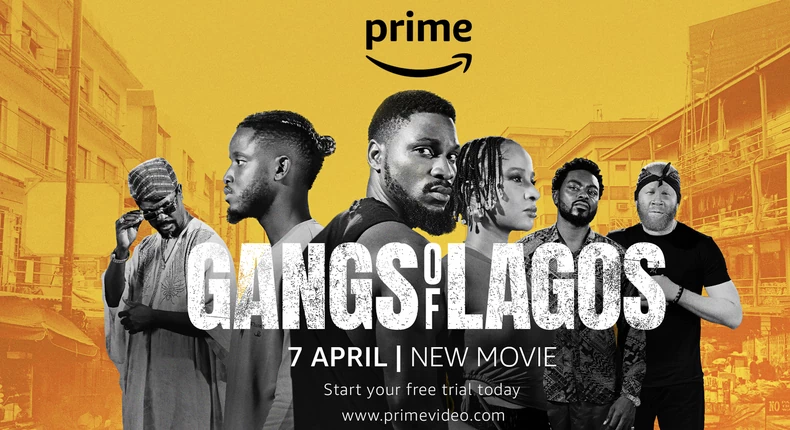Amazon Web Services Nigeria, a subsidiary of Amazon Inc. and founder of Prime Video Nigeria, has responded to claims that its film, “Gangs of Lagos,” is injurious to anyone.
The company is currently a defendant in a lawsuit, No LD/6903GCM/2023, filed by the Isale Eko Descendants Union (IDU) at a Lagos High Court. The IDU is seeking ₦10 billion in damages over the film’s content.
Join our WhatsApp ChannelIn a statement issued by Amazon in Lagos, it was revealed that Justice Idowu Alakija of the Lagos High Court has scheduled a date in October to determine Amazon’s preliminary objection to the lawsuit.
The defendants have questioned the jurisdiction of the Lagos State Government in censoring films produced within its boundaries, as stipulated in the Cinematograph Law of Lagos State, 2004.
Amazon argues that the state’s Cinematography Law does not apply to the matter at hand, as they are accused of depicting the claimants’ territory as a den of criminals and their traditional Eyo as a gang.
READ ALSO:Movies Coming To Amazon Prime Video This March
The defendants are seeking an order from the court to strike out the suit, claiming that the court lacks jurisdiction to hear it. They argue that the appropriate law for the case is the National Film and Video Censors Board Act, 1993, not the Cinematography Law of Lagos State.
The lawsuit includes other defendants such as Jadesola Osiberu, Kemi Lala-Akindoju, Adesegun Adetoro, Demi Olubanwo, Olumide Soyombo, and Bankole Wellington.
The film is accused of sacrilegious and scandalous depictions of the Eyo Masquerade. The claimants in the suit are Chief Ayodele Bajulaiye on behalf of the Bajulaiye Chieftaincy Family and Eyo Iga Bajulaiye, as well as Chief Abdul-Waheed Ayeni on behalf of the Sasore Chieftaincy Family and Eyo Iga Sasore.
In its preliminary objection, Amazon challenges the regulatory powers of the Lagos State Government in this case. The company requests the court to dismiss the Lagos State Cinematography Law, claiming that it was enacted outside the legislative competence of the Lagos State House of Assembly.
The defendants argue that the High Court of Lagos State does not have jurisdiction to enforce censorship of the film under its Cinematography Law, as it falls within the provisions of the National Film and Video Censors Board Act.
The defendants also argue that the High Court of Justice is precluded by the 1999 constitution from exercising jurisdiction over the interpretation of the Constitution as it relates to the Federal Government and its agencies.
The court’s decision on Amazon’s preliminary objection and the jurisdictional issues will have significant implications for the lawsuit and the regulatory landscape of the film industry in Lagos State.
















Follow Us